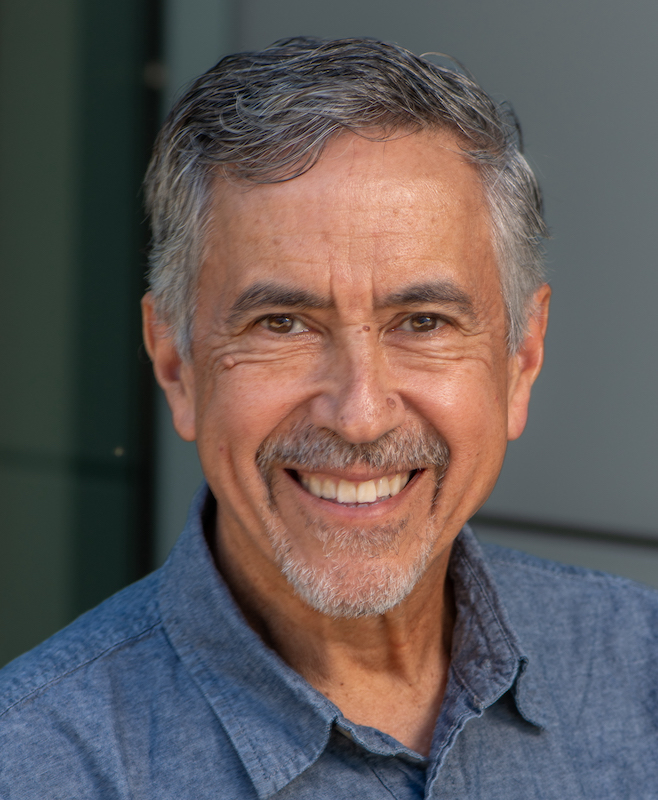Seventh Annual Texas A&M Research Computing Symposium
Last Update: May 5, 2024
Symposium Details
Dates: May 20-23, 2024
Location: College Station, TX
Questions? Call us at (979) 458-8414 or email events@hprc.tamu.edu
Texas A&M's High Performance Research Computing is hosting a series of talks and Workshops May 20-23, 2024 to showcase the A&M community’s work in high-performance computing and data-intensive research. There will be an opportunity for students to present their work at the poster session.
Check back regularly for updated details on speakers and the agenda.
Keynote talks:
Katie Antypas, Director of the National Science Foundation's (NSF) Office of Advanced Cyberinfrastructure (OAC)
Richard Gerber, Senior Science Advisor at the National Energy Research Scientific Computing Center (NERSC)
Sandra Gesing, Executive Director of the US Research Software Engineer Association (US-RSE)
Banquet and Poster Session with a prize for best poster
Speakers
Prof. Freddie Freddie Witherden, Ocean Engineering, Texas A&M University
Prof. Phanourios Tamamis, Chemical Engineering, Texas A&M University
Dr. Lars Koesterke, Texas Advanced Computing Center
Mahsa Lotfollahi, NVIDIA
Arianna Martin, HPC Platform Engineer, bp Center for HPC, NAG HPC Services
Workshops on AI/ML, CUDA, R, Containers, MATLAB, and more
Keynote Talks
Opportunities in High Performance Computing at NERSC and the U.S. Department of Energy
Richard Gerber, Senior Science Advisor at the National Energy Research Scientific Computing Center (NERSC)
Abstract: The rapid pace of change in High Performance Computing creates several challenges, but even more so it creates a wealth of new opportunities. In this talk I’ll describe how NERSC and other DOE facilities, along with the Exascale Computing Project, have created new capabilities for researchers who use modeling and simulation, discovery through data, and AI for scientific discovery. I’ll also discuss opportunities for expanding the realm of DOE HPC to engage a broader and more connected community of researchers and cyberinfrastructure professionals.
Bio:
Richard Gerber is the Senior Science Advisor at the National Energy Research Scientific Computing Center (NERSC) at Lawrence Berkeley National Laboratory. He also currently serves as Director of Hardware and Integration for the DOE's Exascale Computing Project. Richard has worked with leading-edge HPC systems for more than 30 years, starting with graduate work at the National Center for Supercomputing Applications (NCSA), through a National Research Council Postdoctoral Fellowship at NASA-Ames Research Center, and as a staff member at NERSC since 1996. Richard holds a B.S. in Physics from the University of Florida, and a Ph.D. in Physics from the University of Illinois at Urbana-Champaign.
From 1995 to February 2024, Richard was the NERSC HPC Department Head, managing the User Enagement, Application Performance, Future Technologies, Programming Environment and Models, and Business Operation Services groups. As Senior Science Advisor, he works as a liaison between NERSC and the scientific community and manages the Director's Disrectionary Reserve allocations, which are directed to projects that advance strategic goals. In that role he also works closely with program managers in the six Office of Science scientific program offices to help them achieve their advanced scientific computing goals. Richard is on the Steering Committee for the PEARC Conference Series, an active Coalition for Academic Scientific Computation (CASC) member, and part of two DOE post-exascale software sustainability projects.
US-RSE: Empowering Hidden Contributors Driving Science
Sandra Gesing, Executive Director of the US Research Software Engineer Association (US-RSE)
Abstract: Over the past decade, academia and national labs have increasingly recognized the crucial role of hidden contributors contributing to accelerating science. The acknowledgement is evident in quite some projects. From the founding of 8 Research Software Engineer Associations worldwide to the dedicated efforts of the NSF Center of Excellence for Science Gateways. While it is encouraging that the importance of research software and the people being in this line of work receive more attention, we still have a long road in front of us for well-defined career paths and incentives. A multi-facet approach is needed to meet researchers and educators as well as the hidden contributors where they are. This talk will delve into the crucial role of research software engineers in advancing research and computational activities. Furthermore, It will highlight the importance of fostering a community that encompasses all stakeholders in academia and national labs, advocating for a cultural change and actionable measures on how everyone can contribute to make it happen.
Bio: Sandra Gesing is the inaugural Executive Director of the US Research Software Engineer Association and a Senior Researcher at the San Diego Supercomputer Center. Her research focuses on science gateways, computational workflows as well as distributed and parallel computing. She is especially interested in sustainability of research software, usability of computational methods and reproducibility of research results. Sustainability of research software has many facets and she advocates for improving career paths for research software engineers and facilitators and for incentivizing their work via means beyond the traditional academic rewarding system. Before her positions at US-RSE and SDSC, she was a senior research scientist at the Discovery Partners Institute (DPI), University of Illinois System, Chicago and she was an associate research professor at the University of Notre Dame, Indiana, US. Before she moved to the US, she was a research associate at the University of Edinburgh, UK, and at the University of Tübingen, Germany. Additionally, she has perennial experience as a project manager and system developer in industry in the US and Germany. As head of a system programmer group, she has long-term software projects. She received her Master’s degree in computer science from extramural studies at the FernUniversität Hagen and her PhD in computer science from the University of Tübingen, Germany.
Workshops
Containers for HPC Reproducibility: Building, Deploying, and Optimizing
Tuesday, May 21 9:00AM-12:00PM
Instructor: Dr. Carlos del-Castillo-Negrete, Research Associate, Texas Advanced Computing Center
Software containers have gained immense popularity as an effective means for enhancing the portability and reproducibility of high-performance computing (HPC) applications.
This hands-on workshop is designed to provide a comprehensive introduction to building, running, and distributing Docker and Singularity/Apptainer containers specifically tailored for HPC environments.Participants will receive in-depth guidance on creating HPC-compliant containers that are not only suitable for local testing and development but also optimized for deployment on advanced HPC systems.
Special attention will be given to the intricacies of building containers that can run on multiple nodes using MPI and using accelerated hardware such as GPUs.Moreover, the workshop will delve into best practices for containerization in HPC contexts, troubleshooting common issues, and strategies for ensuring the seamless integration of containers into existing HPC workflows.
By the end of the session, attendees will be equipped with the knowledge and skills necessary to leverage the full potential of HPC containers, contributing to more efficient, reproducible, and scalable computing solutions.
- Docker and Singularity/Apptainer basics
- Containerizing your own code
- Multi-stage and Multi-architecture Docker builds
- Running containers on HPC systems, including MPI parallelism and GPU enabled containers
About the presenter: Dr. Carlos del-Castillo-Negrete is a Research Associate in the High Performance Computing Group at the Texas Advanced Computing Center. His research interests center around developing HPC applications for machine learning and uncertainty quantification, particularly in the realm of climate and natural hazards modeling.
CUDA Programming: Basic Concepts in C and Fortran
Tuesday, May 21 1:00PM-4:00PM
Instructor: Dr. Lars Koesterke, Research Associate, Texas Advanced Computing Center
This workshop is designed to teach the fundamentals of CUDA programming for those with a background in programming (C/C++/Fortran) but little to no exposure to CUDA programming.
Learning Objectives:- Basic CUDA programming concepts: ‘software matching hardware’
- Performance optimization and techniques beneficial under most circumstances
Prerequisites: Basic knowledge of C/Fortran, or generally of a programming language
About the presenter: Dr. Lars Koesterke joined TACC is as a Research Associate in the High Performance Computing group at TACC. Before coming to TACC, he held positions at the Astronomy Department at The University of Texas at Austin, NASA's Goddard Space Flight Center and the Universities of Potsdam and Kiel (both Germany). His work at TACC is focused on performance evaluation and optimization.
Accelerate seismic facies classification using wavelet-informed deep learning
Tuesday, May 21 1:00PM-3:30PM
Hosted by MathWorks
Instructor: Ayon K. Dey, PhD, Senior Application Engineer, MathWorks
Interpretation of geological facies from large seismic datasets is one of the key steps in modeling and simulating subsurface reservoirs to support oil & gas exploration, field development planning, unconventional play development, and carbon storage – just to name a few use cases. MATLAB enables the creation of a fast and robust workflow to classify facies using large seismic datasets by integrating unique geophysical and deep learning methodologies.
Attendees will learn:- How to accelerate seismic facies classification by integrating geophysics (multi-resolution analysis or MRA) and deep learning (recurrent neural networks or RNN) while reducing overfitting with unique wavelet signals;
- How to reduce computing time using GPU computing capabilities on very large seismic datasets;
- How RNN proves to be more effective to classify seismic facies compared to other deep learning methods (e.g., convolutional neural networks or CNN) based on results from blind tests conducted at the 2021 SEAM Hackathon.
About the presenter: Ayon K. Dey is a Senior Application Engineer at MathWorks based in Texas. Ayon’s experience spans over 30 years working in multiple Geosciences roles for oil, gas, and chemical companies based in Canada, USA, Saudi Arabia, South Africa, and UAE, as well as for research institutions in Canada and The Netherlands. Ayon has 17 expanded abstract and journal publications in technical geoscience; holds a Ph.D. degree in Applied Physics from Delft University of Technology, an M.Sc. degree in Geology and Geophysics from University of Calgary, and a B.Sc. in Applied Mathematics from Memorial University of Newfoundland.
Full Schedule (All times are CT), subject to change
Last Update: May 5, 2024
| Monday, May 20 | Workshops |
|---|---|
| Morning | Techlab with AI/ML |
| 12:00 PM - 1:00 PM | Lunch |
| Afternoon | Data Explorations with R |
| Tuesday, May 21 | Workshops |
| Morning | Container Technologies in Research Computing |
| 12:00 PM - 1:00 PM | Lunch |
| Afternoon | Web-access to Research Computing |
| Wednesday, May 22 | Keynote, Research Talks, Banquet and Poster Session |
| Morning | |
| 11:00 AM - 12:00 PM | Keynote: Opportunities in High Performance Computing at NERSC and the U.S. Department of Energy Richard Gerber, Senior Science Advisor and HPC Department Head at the National Energy Research Scientific Computing (NERSC) Center |
| 12:00 PM - 1:00 PM | Lunch |
| 1:00 PM - 2:00 PM | Keynote: Katie Antypas, Director of the National Science Foundation's Office of Advanced Cyberinfrastructure |
| Afternoon | Researcher Lightning talks |
| 5:00PM - 7:00PM | Banquet and Poster Session ILSB Lobby map |
| Thursday, May 23 | Keynote, Research Talks |
| Morning | |
| 11:00 AM - 12:00 PM | Keynote: US-RSE: Empowering Hidden Contributors Driving Science Sandra Gesing, Executive Director of the US Research Software Engineer Association (US-RSE) |
| 12:00 PM - 1:00 PM | Lunch |
| Afternoon |
Arianna Martin, HPC Platform Engineer, bp Center for HPC, NAG HPC Services |
| Researcher Lightning Talks | |
Posters
Thanks to our Sponsors!
Texas A&M Research Computing Symposium is supported in part by NSF award #1925764, CC* Team: SWEETER -- SouthWest Expertise in Expanding, Training, Education and Research and NSF award #2112356, ACSS: ACES - Accelerating Computing for Emerging Sciences.
